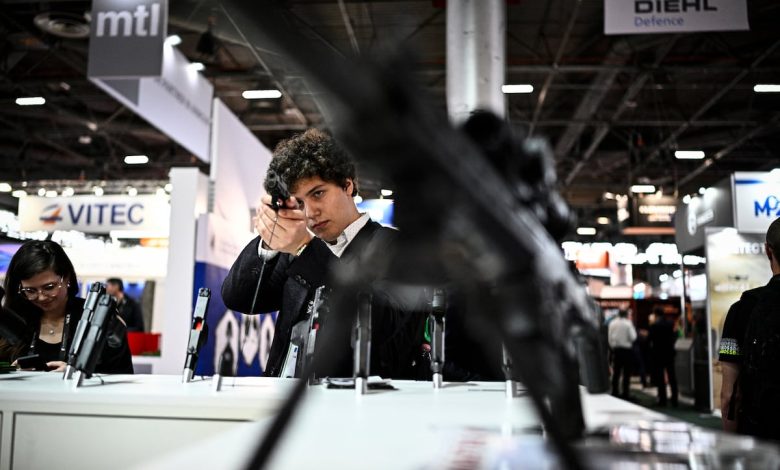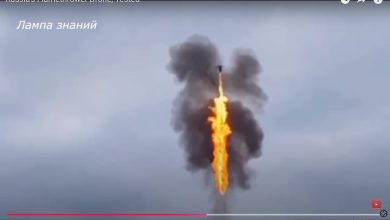New pact boosts defense-industry goals in EU lending scheme

BERLIN — The European Union’s funding and defense branches are moving closer together in a bid to strengthen the continent’s military-industrial complex, with an updated agreement between the European Investment Bank and the European Defence Agency being concluded on Wednesday.
The European Investment Bank, which funds businesses and projects across the bloc to enhance Europe’s competitiveness, will now receive industry guidance from the European Defence Agency, a joint press release said on Tuesday. The partnership “aims to provide increased investments to strengthen the EU collective defense capabilities,” the statement further said.
The EIB has traditionally been strictly civilian. Restrictions on its lending and funding policies ruled out funding most military projects or procurements. Those rules have been weakened in the past half-decade, especially since the war in Ukraine.
A memorandum of understanding between the EDA and the EIB was signed as early as 2018, with the latest agreement as an update to the original document. While the watershed moment came in February 2022, with Russia’s invasion of Ukraine, a collection of small moves aimed at steering the Brussels bureaucracy towards defense outcomes has effectively eroded a longstanding taboo, as Defense News has previously reported.
“The EIB Group is implementing its objectives outlined in the Defence Action Plan, and is committed to helping scale up this industry,” said Jiří Šedivý, the chief executive of the European Defence Agency.
By collaborating with the Agency, the EIB and its components are meant to be better informed about needs of the defense sector. This will “reinforce our shared goal of enhancing European security,” said Marjut Falkstedt, chief executive of the European Investment Fund, a part of the EIB tasked with supporting small- and medium-sized enterprises across the continent. The fund has played a significant role in the EU bank’s efforts to enter the security space.
European governments have allocated more funding to military matters since Russia invaded Ukraine and the resulting loss of a sense of security on the continent. Simultaneously, the EU has become more assertive in the defense space, a field traditionally considered a prerogative purely of the 27 member states’ national governments and NATO.
For the first time ever, the European Union this year will get a dedicated defense commissioner, nominated by Ursula von der Leyen after her re-election as the Bloc’s head and expected to be confirmed by November. While far from a traditional defense minister – national governments aren’t willing to give up that much power to Brussels quite yet – the new commission post will likely work to coordinate joint procurement and further European military integration. Both trends have increasingly entered the policy mainstream across the continent.
Simultaneously, some have called for the EU to play a more prominent role in defense procurement and funding. This is where the EIB and its subsidiary institutions come in. The bank has set itself a target of funding €8 billion ($8.8 billion) through its Strategic European Security Initiative until the end of 2027, of which it has already disbursed €2 billion ($2.15 billion) in the program’s first two years.
Linus Höller is a Europe correspondent for Defense News. He covers international security and military developments across the continent. Linus holds a degree in journalism, political science and international studies, and is currently pursuing a master’s in nonproliferation and terrorism studies.
Read the full article here






